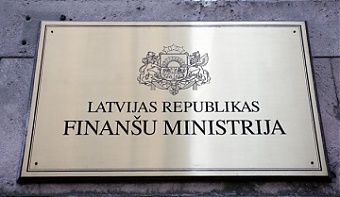Analytics, Covid-19, Crisis, Economics, Financial Services, GDP, Latvia
International Internet Magazine. Baltic States news & analytics
Monday, 23.02.2026, 20:27
FinMin: Latvia's GDP reduction in 2020 could be at 7%
 Print version
Print version |
|---|
The mentioned macroeconomic development scenario will be the basis for the national budget for 2021 and the medium-term budget framework for 2021-2023.
In the baseline scenario, GDP is projected to fall by 7% at constant prices this year, with private consumption, exports and investment declining as a result of the Covid-19 crisis. In turn, in 2021, economic growth is forecast to recover and grow by 5.1%, while in 2022 and 2023, GDP growth is estimated at 3.1%.
At the same time, the MoF notes that the medium-term macroeconomic development scenario was developed in June 2020, based on conservative assumptions, taking into account GDP data for the first quarter of 2020 and short-term macroeconomic information available until June, as well as taking into account the government-approved measures to lessen impact of the Covid-19 crisis on the national economy.
In 2020, the general government budget deficit is projected at 7.6% of GDP.
In addition to the baseline scenario, the MoF has also developed a "second wave" scenario for the impact of Covid-19 if the downside risks to the macroeconomic baseline scenario materialize and the coronavirus spread persists or a new wave of disease occurs, leading to a sharper decline in GDP and employment.
Compared to the baseline scenario, the "second wave" scenario envisages a faster decline in GDP this year, ie in 2020 the decline in the economy is estimated at 9%, as well as a slower economic recovery in the coming years. In 2021, GDP growth in this scenario is forecasted at 2%, in 2022 - at 4.6%, and in 2023 at 3.2%.
- 28.01.2022 BONO aims at a billion!
- 25.01.2021 Как банкиры 90-х делили «золотую милю» в Юрмале
- 30.12.2020 Накануне 25-летия Балтийский курс/The Baltic Course уходит с рынка деловых СМИ
- 30.12.2020 On the verge of its 25th anniversary, The Baltic Course leaves business media market
- 30.12.2020 Business Education Plus предлагает анонсы бизнес-обучений в январе-феврале 2021 года
- 30.12.2020 Hotels showing strong interest in providing self-isolation service
- 30.12.2020 EU to buy additional 100 mln doses of coronavirus vaccine
- 30.12.2020 ЕС закупит 100 млн. дополнительных доз вакцины Biontech и Pfizer
- 29.12.2020 В Rietumu и в этот раз создали особые праздничные открытки и календари 2021
- 29.12.2020 Latvia to impose curfew, state of emergency to be extended until February 7








 «The Baltic Course» Is Sold and Stays in Business!
«The Baltic Course» Is Sold and Stays in Business!

